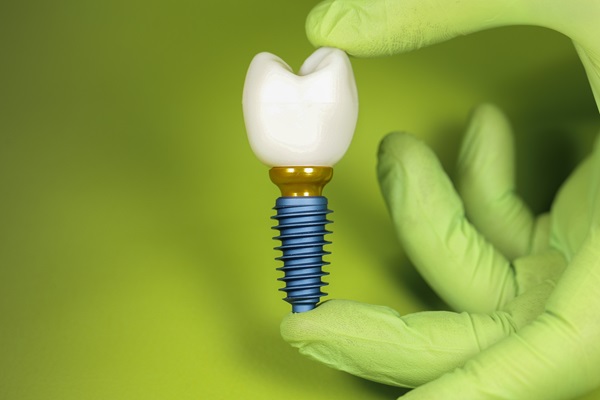 Often referred to as "caps," dental crowns are a dental restoration that envelops an entire tooth, down to the gum. Unlike filling material, which is placed inside a tooth, a dental crown encases the tooth's structure in a durable, protective layer of porcelain or ceramic. Dentists often recommend dental crowns to shield the tooth from further damage and restore dental function.
Often referred to as "caps," dental crowns are a dental restoration that envelops an entire tooth, down to the gum. Unlike filling material, which is placed inside a tooth, a dental crown encases the tooth's structure in a durable, protective layer of porcelain or ceramic. Dentists often recommend dental crowns to shield the tooth from further damage and restore dental function.
How dental crowns work
Dental crowns provide great protection and reinforcement to natural teeth. Before recommending a crown, the dentist will perform a proper dental assessment to determine how best to restore the tooth. Often, the next step is to take impressions of the tooth to ensure proper fit. Depending on the circumstances, here are some reasons why a dentist might recommend a dental crown:
Repairing a damaged tooth or eroded enamel
Tooth decay, trauma, and clenching or grinding can break or erode tooth enamel. Damaged teeth tend to continue deteriorating unless a dental crown procedure is performed to safeguard them. An irregular tooth shape can also impact adjacent teeth and the temporomandibular joint (TMJ).
Without a dental crown to protect the compromised tooth structure, the remaining tooth may experience premature, advanced enamel wear, affecting both oral function and appearance. The sooner the tooth is shielded, the less likely it is that additional structural damage will occur.
Reinforcing a tooth’s shape and structure
Some natural teeth may have irregular shapes, which can negatively impact appearance and function. When a dentist places dental crowns, they ensure the new crown aligns properly with all surrounding teeth, including those it bites against. Crowns allow for normal biting and chewing, so there is no need to worry about the restoration's functionality. The process will also likely make the patient more confident in their smile.
Safeguarding a weakened tooth
Structurally compromised teeth can gradually break down over time. A tooth may be weak due to an old, large filling or root canal treatment, resulting in a non-vital tooth. If there is extensive tooth decay that a filling cannot repair, the next logical solution is a permanent crown that covers the entire tooth. This protection prevents the underlying tooth enamel from deteriorating when chewing.
Porcelain, metal, or resin crowns can be used throughout the mouth, depending on the location of the affected tooth. The dentist will discuss each option's advantages based on the specific situation. Along with root canal treatments, dental crowns serve as one of the final lines of defense for severely damaged teeth.
The bottom line
Whether dealing with a cracked tooth or replacing old resin crowns with a permanent solution, the placement of a dental crown provides a durable and aesthetically pleasing solution. The dental crown will not only restore dental function but also prevent further damage to the teeth. With proper dental hygiene practices, these permanent crowns can last for several years. If you have a damaged tooth, contact our dental office today to schedule an appointment.
Request an appointment or call Dental Partners Dickson at 615-931-4088 for an appointment in our Dickson office.
Related Posts
A general dentist helps patients prevent oral health concerns before they become problems. A dental checkup is the key way they achieve this. However, there are other preventive dental services that general dentists offer to boost oral health for patients of all ages.Preventive dental services focus on maintaining oral health and avoiding the development of…
Teeth whitening treatments can help you achieve the bright smile you have always wanted. Dentists have two main options they offer patients regarding whitening their teeth: professional teeth whitening and at-home whitening kits. Professional teeth bleaching treatments can be broken down into conventional and laser whitening treatments.These two teeth-whitening alternatives use peroxide-based chemicals as bleaching…
Considering dental crowns? Read on to learn more about this restoration option. Dental crowns can address a number of issues, ranging from cavity treatment to stain coverage. However, despite being a common and successful treatment, there are a few factors to consider ahead of time.Below is a quick rundown of what to know before getting…


